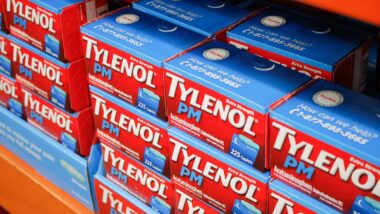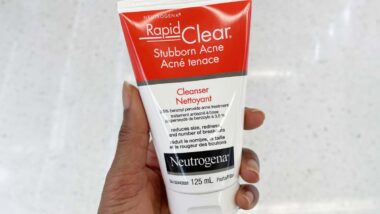 Patients across the country are filing their own canagliflozin lawsuit against Johnson & Johnson and subsidiary Janssen Pharmaceuticals, for allegedly failing to warn them against the potential side effects of Invokana and Invokamet.
Patients across the country are filing their own canagliflozin lawsuit against Johnson & Johnson and subsidiary Janssen Pharmaceuticals, for allegedly failing to warn them against the potential side effects of Invokana and Invokamet.
Many patients who choose to file a canagliflozin lawsuit have suffered serious side effects from the medication like ketoacidosis or treatment failure that resulted in diabetes amputation.
If a patient chooses to file their own canagliflozin lawsuit could pursue their own legal course of action, or join a multidistrict litigation (MDL) where it will stand alongside other claims alleging similar injuries.
Over 950 Invokana or Invokamet lawsuits pending in the U.S. District Court of New Jersey allege serious complications like ketoacidosis and diabetes amputation. These claims are being processed by a single judge, which prevents problems like conflicting rulings and streamlines the numerous lawsuits.
According to a recent report issued by the United States Judicial Panel on Multidistrict Litigation (JPML), there are currently 952 Invokana or Invokana lawsuits pending as of Dec. 15, 2017.
Each of the claims alleges the plaintiffs had sustained serious drug complications like ketoacidosis or the need to undergo diabetes amputation due to canagliflozin. Both Invokana and Invokamet contain canagliflozin, which is a part of the SGLT2 inhibitor drug family.
These drugs work by preventing the body’s blood sugar levels from getting too high, by signaling the kidneys to expel excess blood sugar. Combined with diet and exercise, Invokana and Invokamet are supposed to be suitable treatment choices for type-2 diabetes.
Ever since these medications were released into the market, millions of patients have opted for these prescriptions. However, not long after the drugs were released, a number of patients opted to pursue legal action by filing a canagliflozin lawsuit.
Overview of Canagliflozin Side Effects
The FDA required diabetic ketoacidosis to be added to the drug labels of canagliflozin medications in December 2015 with a new label including blood and kidney infections. The FDA later warned against diabetes amputation in May 2017, with the agency stating patients faced increased risks of diabetes amputation.
Diabetes amputation is sometimes necessary when the patient develops severe nerve damage in their lower limbs due to failure to prevent excess swelling and ulcers. Ketoacidosis is another significant risk associated with Invokana and Invokamet due to the treatment mechanism directly interacting with the kidneys. Ketoacidosis occurs when the blood becomes too acidic, which can lead to serious kidney damage or failure in worst cases.
Ketoacidosis occurs if there are insufficient insulin levels, which forces the body to metabolize fat instead of sugar. Both diabetes amputation and ketoacidosis are complications Invokamet and Invokana are supposed to prevent, but has allegedly failed to do so in many patients.
According to Johnson & Johnson 3rd Quarter earnings statement, at least 1,100 Invokana or Invokamet lawsuits have been filed as of Oct. 1, 2017 in courts throughout the country. There are also Invokana and Invokamet lawsuits pending in Pennsylvania, California, and New Jersey state courts.
In general, Invokana and Invokamet lawsuits are filed individually by each plaintiff and are not class actions.
Do YOU have a legal claim? Fill out the form on this page now for a free, immediate, and confidential case evaluation. The attorneys who work with Top Class Actions will contact you if you qualify to let you know if an individual lawsuit or class action lawsuit is best for you. Hurry — statutes of limitations may apply.
ATTORNEY ADVERTISING
Top Class Actions is a Proud Member of the American Bar Association
LEGAL INFORMATION IS NOT LEGAL ADVICE
Top Class Actions Legal Statement
©2008 – 2026 Top Class Actions® LLC
Various Trademarks held by their respective owners
This website is not intended for viewing or usage by European Union citizens.
Get Help – It’s Free
Join a Free Invokana Class Action Lawsuit Investigation
If you or a loved one suffered ketoacidosis or lower extremity amputation after taking Invokana, Invokamet, or Invokamet XR, you may have a legal claim. See if you qualify to pursue compensation and join a free diabetes medication class action lawsuit investigation by submitting your information for a free case evaluation.
An attorney will contact you if you qualify to discuss the details of your potential case.
Please Note: If you want to participate in this investigation, it is imperative that you reply to the law firm if they call or email you. Failing to do so may result in you not getting signed up as a client, if you qualify, or getting you dropped as a client.
Oops! We could not locate your form.












